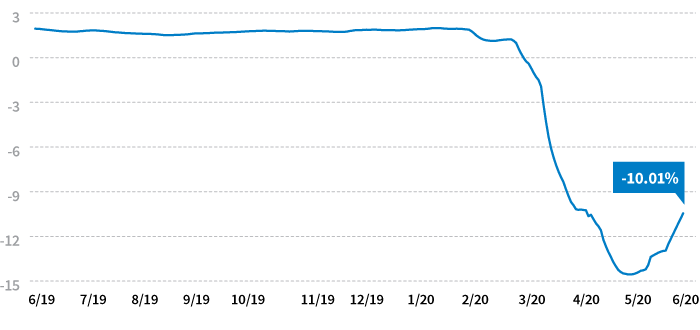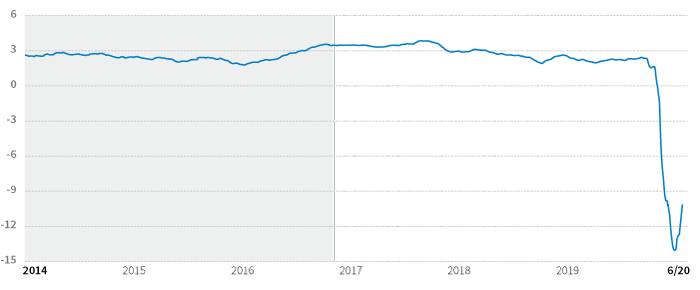Global growth improves slightly
SHORT-TERM TREND
The likelihood that growth will stabilize at the current rate has risen.
▲2.27%
Among G-10 economies, the eurozone and United Kingdom improved while the United States had a disappointing month. In the eurozone, industrial production rose. However, ISM manufacturing and non-manufacturing in the United States faltered, pushing growth lower. Economic indicators improved in Turkey and across Latin America. Chin's growth held steady as industrial output and housing activity expanded.

LONG-TERM CYCLE
This six-year illustration captures GDP gyrations since the financial crisis.

Jan '14–Oct '16
Global growth settles into a more subdued pattern of modestly disappointing results.
Nov '16–Dec '17
More synchronous performance across global markets emerges to lift the trajectory of global growth.
Source: Putnam. Data as of October 31, 2019. We base our Global GDP Nowcast on a tailored methodology that captures daily data releases for the most essential growth characteristics for each of 25 countries — including purchasing managers’ index data, industrial production, retail sales data,
labor market metrics, real estate price indexes, sentiment indicators, and numerous other factors. The mix of factors used for each market may
change over time as new indicators become available from data sources or if certain factors become more, or less, predictive of economic growth.






